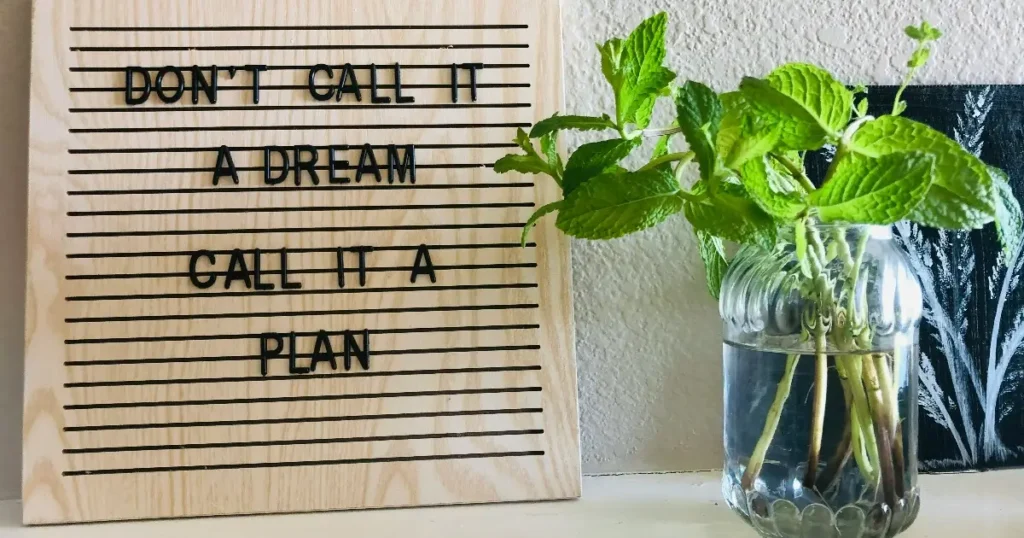8 Habits That Will Propel You Toward Your Self-Improvement Goals

In the pursuit of personal excellence and sustained growth, the integration of effective habits into our daily lives plays a pivotal role. Success doesn’t occur by chance; it’s built through a series of deliberate actions and steadfast commitment to self-improvement.
Whether you’re aiming to enhance your career, elevate your mental well-being, or strengthen your relationships, adopting certain key habits can significantly increase your likelihood of achieving these aspirations.
This article outlines eight foundational habits that are not just practices but catalysts for long-lasting change. By embedding these behaviors into your routine, you can create a powerful momentum towards realizing your fullest potential. Let’s explore these transformative habits that promise to steer you effectively toward your self-improvement goals.
What Is Self-Improvement?
Self-improvement is the continuous process of enhancing one’s skills, behaviors, and qualities to achieve a better quality of life and personal satisfaction. It involves setting goals, acquiring new abilities, and making positive lifestyle changes. This journey often includes improving emotional intelligence, increasing productivity, and developing healthier relationships. Through self-reflection and dedicated effort, individuals engage in self-improvement to foster personal growth and enhance their overall well-being.
- What Is Self-Improvement?
- Habit 1: Set Clear Goals
- Habit 2: Maintain a Growth Mindset
- Habit 3: Practice Regular Self-Reflection
- Habit 4: Develop a Reading Habit
- Habit 5: Prioritize Health and Wellness
- Habit 6: Learn to Manage Time Effectively
- Habit 7: Build Strong Relationships
- Habit 8: Stay Committed and Persistent
- Summary Table: Key Habits for Self-Improvement Success
- Final Thoughts
Habit 1: Set Clear Goals

Success begins with a blueprint. Setting clear, well-defined goals is not just the first step but the cornerstone of your self-improvement journey. By employing the SMART framework—Specific, Measurable, Achievable, Relevant, and Time-bound—you ensure that your goals are not only attainable but also aligned with your broader life ambitions.
This method transforms vague aspirations into actionable paths. Here’s how to set SMART goals:
| Step | Example | |
|---|---|---|
| 1 | Specific | Improve my public speaking skills. |
| 2 | Measurable | Attend a public speaking workshop and participate in 12 Toastmasters sessions over the next 6 months. |
| 3 | Achievable | Enroll in a beginner-level public speaking course offered by a local community college this month. |
| 4 | Relevant | Improving my public speaking skills will enable me to contribute more effectively in team meetings and presentations at work. |
| 5 | Time-bound | Achieve a higher level of confidence and receive positive feedback on my speaking skills in work settings within 6 months. |
Imagine the power of knowing precisely what you want to achieve and by when. It eradicates confusion and focuses your energies on what matters most. Each goal acts as a milestone, marking your progress and motivating you to push through obstacles. Whether it’s advancing in your career, improving your health, or learning a new skill, clear goals provide the direction and motivation needed to turn your visions into reality.
Start by articulating what you want to accomplish. Break it down into smaller, manageable tasks and set deadlines. Review and adjust these goals regularly to reflect your growth and the changing dynamics of your life. Remember, the clarity of your goals directly influences the effectiveness of your efforts. Make goal-setting a priority and watch as it propels you toward unprecedented growth and success.
Habit 2: Maintain a Growth Mindset

The path to self-improvement is paved with continuous learning and an unwavering belief in the possibility of progress. Embracing a growth mindset, a concept popularized by psychologist Carol Dweck, is essential for anyone serious about personal development. This mindset revolves around the belief that your basic qualities are things you can cultivate through effort and persistence.
Adopting a growth mindset means viewing challenges as opportunities, not obstacles. It encourages resilience in the face of setbacks and a commitment to ongoing improvement. With this approach, feedback becomes a tool for learning, and even failures are seen as valuable lessons rather than defeats.
Cultivate this mindset by challenging yourself to step outside your comfort zone and tackle tasks that you may initially perceive as difficult. When confronted with difficulty, remind yourself that capability isn’t fixed, but rather something that can be developed with time and effort. Celebrate your growth and the process of getting better, not just the end results.
By fostering a growth mindset, you enable yourself to approach your goals with flexibility and perseverance, essential traits for anyone looking to enhance their life and achieve lasting success. Embrace the journey of growth and let your mindset be the guide that turns potential into performance.
Habit 3: Practice Regular Self-Reflection

To navigate the complexities of personal growth, regular self-reflection emerges as a non-negotiable discipline. This introspective practice isn’t merely about scrutinizing what went wrong; it’s a strategic review of your experiences, behaviors, and outcomes to foster deeper understanding and proactive improvement.
Engaging in consistent self-reflection allows you to pause amidst the rush of daily commitments and assess your progress towards your goals. It helps pinpoint not only areas needing improvement but also celebrates the victories, no matter how small, reinforcing positive behaviors. By taking stock of your actions and their impacts, you refine your approach, making informed decisions that align better with your long-term aspirations.
Implement this habit by setting aside dedicated time each week for reflection. Use this time to ask critical questions: What did I learn this week? What did I accomplish, and what could I have done better? How do my actions align with my overall objectives? This practice of looking inward ensures you stay aligned with your true intentions and remain on course towards achieving your self-improvement goals.
In essence, self-reflection is the compass that keeps you oriented towards your true north, ensuring that every step taken is a step forward. Equip yourself with this powerful tool, and watch as it transforms not just your actions, but the very trajectory of your life.
Habit 4: Develop a Reading Habit

Knowledge is the fuel for personal growth, and reading is one of the most efficient ways to access it. Cultivating a robust reading habit opens the door to new ideas, perspectives, and skills, essential for anyone committed to self-improvement. Whether it’s non-fiction that expands your understanding of the world, literature that enhances empathy, or self-help books that provide actionable advice, each page turned accumulates into a richer, more informed you.
Embrace reading not just as a leisure activity but as a strategic tool for development. Diversify your reading materials to challenge your thinking and expose yourself to different schools of thought. This practice will not only increase your knowledge but also improve your cognitive abilities like analytical thinking and problem-solving.
To integrate this habit into your life, set realistic reading goals—start with a book a month, or a set number of pages each day. Choose a variety of genres and topics to keep the habit engaging and broadly beneficial. Remember, the goal of this habit isn’t just to read more, but to think better and develop a more comprehensive understanding of the world around you.
By making reading a regular part of your routine, you’re not just collecting information; you’re building a foundation for continuous personal growth. So, pick up that book and let each page propel you a step closer to your best self.
Habit 5: Prioritize Health and Wellness

In the quest for self-improvement, your physical health and wellness form the bedrock of your ability to pursue and achieve your goals. Neglecting this critical aspect can undermine all other efforts, as it’s hard to maintain the energy and focus needed for personal development when you’re not physically well.
Prioritizing your health means more than just avoiding illness. It involves actively cultivating practices that enhance your physical well-being, such as regular physical activity, a nutritious diet, and adequate sleep. These elements are essential for maintaining high energy levels, sharp mental acuity, and emotional stability, all of which are vital for tackling the challenges associated with personal growth.
Start by integrating simple, sustainable changes: replace processed foods with whole, nutrient-rich foods; aim for physical activity that you enjoy, which can range from yoga to hiking to strength training, at least a few times a week; and establish a consistent sleep schedule that allows you to wake up refreshed.
Investing in your health is a direct investment in your capacity for self-improvement. When your body is at its peak, your ability to push boundaries, overcome obstacles, and achieve your goals is significantly enhanced. Make health a priority, and your journey towards self-improvement will be both more enjoyable and more successful.
Habit 6: Learn to Manage Time Effectively

Mastering time management is indispensable in your self-improvement arsenal. With only so many hours in the day, how you allocate your time can be the difference between stagnation and achieving significant progress. Effective time management isn’t just about squeezing as many tasks into your day as possible; it’s about prioritizing what’s truly important and ensuring that your actions align with your self-improvement goals.
Start by evaluating how you currently spend your time. Identify activities that do not serve your goals and minimize or eliminate them. Use tools like calendars, planners, and digital apps to schedule your days, allotting specific blocks of time for focused work, learning, exercise, and relaxation. This structured approach helps prevent procrastination and keeps you accountable.
Additionally, learn to say no to non-essential tasks that do not contribute to your growth. This can be challenging but is crucial for maintaining your focus on high-impact activities that yield the most significant benefits. By being mindful of how you use your time and who or what you allow to consume it, you ensure that every hour is spent pushing you closer to your aspirations.
Embrace this discipline to enhance your productivity and efficiency, ensuring that your journey toward self-improvement is both deliberate and fruitful.
Habit 7: Build Strong Relationships

In the journey of self-improvement, the importance of cultivating strong, supportive relationships cannot be overstated. Human beings are inherently social creatures, and our connections with others can significantly influence our mental health, resilience, and ability to achieve our goals. Strong relationships act not only as a support network but also as a mirror, reflecting our growth and areas in need of attention.
To build and maintain these vital connections, focus on fostering genuine communication, showing empathy, and being reliable. Invest time in understanding the needs and perspectives of those around you and respond with compassion and support. Similarly, choose to surround yourself with people who inspire, challenge, and encourage you. These relationships should be mutually beneficial, where both parties provide and receive support.
Additionally, actively seek out mentors and peers who align with your aspirations. These individuals can offer invaluable guidance, feedback, and encouragement that can propel you forward in your personal and professional life. Networking within communities that share your interests or goals can also expand your support system and provide new opportunities for growth.
By prioritizing the development of strong relationships, you not only enhance your personal well-being but also create a conducive environment for continuous improvement and success. Engage deeply with those around you, and let these connections fuel your journey towards achieving your self-improvement goals.
Habit 8: Stay Committed and Persistent

The journey to self-improvement is a marathon, not a sprint. Success in this endeavor requires a deep commitment and unwavering persistence. Challenges and setbacks are inevitable, but the ability to stay focused and keep pushing forward is what ultimately defines your progress.
Commitment means making your self-improvement goals a non-negotiable part of your daily life. It involves setting priorities that may sometimes require sacrifices, such as spending less time on leisure activities to dedicate more to your development tasks. Persistence, on the other hand, is about resilience; it’s the ability to bounce back from setbacks and continue working towards your goals with renewed vigor.
To foster these qualities, start by reminding yourself of the reasons behind your self-improvement goals. Keeping your ultimate objectives in mind can provide the motivation needed to push through tough times. Also, maintain a flexible approach to your goals, allowing room for adjustments as needed without losing sight of your overall direction.
Furthermore, celebrate your progress, no matter how small. Recognizing and rewarding yourself for the steps you’ve taken will reinforce your commitment and energize your efforts moving forward.
By embedding commitment and persistence into your behavior, you ensure that your journey towards self-improvement is continuous and dynamic. These traits are not just about enduring but thriving as you transform challenges into stepping stones for success.
Summary Table: Key Habits for Self-Improvement Success
Now that we’ve explored the eight essential habits that can guide your self-improvement journey, let’s summarize them in a simple table. This overview will help you quickly reference these habits and their key components, ensuring you have a clear blueprint to follow as you work towards your goals.
| 1 | Set Clear Goals | Establish specific, measurable, achievable, relevant, and time-bound (SMART) goals to give direction and purpose to your self-improvement journey. |
| 2 | Maintain a Growth Mindset | Cultivate a mindset that embraces challenges, perseveres through setbacks, and views failure as an opportunity for growth and learning. |
| 3 | Practice Regular Self-Reflection | Dedicate time to reflect on your progress, understand your strengths and weaknesses, and adjust your strategies accordingly. |
| 4 | Develop a Reading Habit | Regular reading can expand your knowledge, provide new perspectives, and inspire new ideas that contribute to personal and professional growth. |
| 5 | Prioritize Health and Wellness | Invest in your physical health through regular exercise, proper nutrition, and adequate sleep, which are all essential for maintaining the energy levels needed for self-improvement. |
| 6 | Learn to Manage Time Effectively | Master time management skills to ensure that you are dedicating sufficient time to your priorities and minimizing wasted time. |
| 7 | Build Strong Relationships | Cultivate supportive relationships that encourage and motivate you. Having a network of supportive friends, family, and colleagues can provide crucial support and feedback. |
| 8 | Stay Committed and Persistent | Self-improvement is an ongoing process that requires persistence. Stay committed to your goals even in the face of difficulties, and continue to strive towards personal growth and development. |
Refer to this table as you integrate these habits into your daily routine, ensuring each step aligns with your broader objectives for personal growth. By consistently applying these principles, you will enhance your ability to reach your self-improvement goals and realize a more fulfilling and productive life.
Final Thoughts

As we conclude our exploration of the habits essential for self-improvement, remember that the journey towards personal excellence is both rewarding and demanding. These practices are designed to be woven into the fabric of your daily life, empowering you to progressively transform your aspirations into achievements.
Embrace this journey with patience and dedication, and allow the cumulative impact of these habits to enrich your life in profound ways. Stay committed to your path of growth and watch as each new day brings you closer to realizing your fullest potential.
Each step taken is an opportunity to learn more about yourself and refine your approach to challenges. As you apply these habits, you’ll notice subtle shifts in your mindset and behaviors that can significantly boost your confidence and resilience. Allow these changes to inspire further action and continuous reflection, which are vital for sustained personal development.
Ultimately, the true value of your self-improvement efforts lies not just in the goals achieved but in the richer, more enlightened person you become through this process.

















